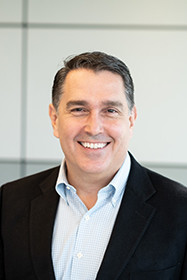Aurinia Wins FDA Approval, Gets A "Monoplant" For Commercial API

By Louis Garguilo, Chief Editor, Outsourced Pharma

In January, Aurinia Pharmaceuticals Inc. received FDA approval for LUPKYNIS (voclosporin), a novel therapy for adult patients with active lupus nephritis (LN).
And with that, Aurinia also gets a “monoplant” to help with commercial API production.
Aurinia and CDMO partner Lonza have put together a multi-year agreement to build a dedicated manufacturing facility – “a state-of-the-art monoplant” – within Lonza’s existing small-molecule API facility in Visp, Switzerland.
So what exactly is a monoplant?
What are its advantages over other outsourcing relationships, and how might other biopharma get their own at a CDMO?
Aurinia’s Max Donley, EVP Operations and Strategy, provides some answers.
Introduction
“I honestly don't know the exact origin of the term-of-art,” Donley says with a smile, “but this contractual agreement provides us dedicated space, and our own production train, within Lonza’s facility.”
“We gain control of our own processing line even though we are at a CDMO, and this serves as further assurance around the confidentiality of our proprietary manufacturing processes.
“The dedicated space provides flexibility to toggle up supply when demand increases,” Donley adds.
I bet Outsourced Pharma readers are already forming the question already, so I asked Donley: What about the financials of such dedicated space – initial build-out, overhead, and equipment costs, potential guarantees of minimum amounts, etc.?
“There is certainly an expectation of a form of shared investment to secure the space,” he replies sparsely, and then adroitly suggests we shouldn’t miss a more important precursor to such an arrangement: “A successful multi-year partnership, and an initial clinical supply agreement.”
In fact, the joint Lonza-Aurinia public “monoplant” announcement came in November, well prior to FDA approval, although I should point out it was closely timed to voclosporin receiving FDA Fast Track status and Priority Review.
More On Timing

“Our original, clinical-supply agreement partnered us up – we’ve had a functioning relationship built on trust ever since. We worked through all the nuances associated with the CMC production at clinical scale for the development programs.
“So this is an evolution of that relationship. I think the starting point is really there.”
Donley adds that for that relationship evolution to start has a lot to do with Aurinia’s efforts, as the sponsor company, “to come forward with the entire depth of scientific expertise we're able to provide. That helps ensure our contract manufacturing partner is able to fulfill all requirements.”
“You can't come into a partnership and expect the CDMO to carry all of that water,” he adds.
Neither can you, to carry his metaphor, expect a CDMO to put all their water in one basket.
Lest we give the wrong impression here, for a CDMO to dedicate and commit to build out space within an existing, fully functioning (and presumably very busy) API facility, is no easy decision.
“Our clinical supply agreement certainly was a much more conventional arrangement; there was no assurance of dedicated equipment or space,” says Donley.
“But along the way, we shared a vision, and those expectations that come through a healthy relationship with your outsource provider.
“Our commercial agreement, then, was structured around those expectations we could expand as we moved through the phases of development. The scale of production would adjust accordingly.
“The difference in moving to commercial scale is the stakes rise for both sides.”
And a monoplant ended up meeting the needs of both sponsor and provider.
But upon my prompting, Donley also makes clear:
“Yes, we entered the agreement prior to our PDUFA date being set. However, in the event we didn't get a label for voclosporin, we could exit the CDMO agreement penalty-free.
Aurinia’s President & CEO, Peter Greenleaf, was clear regarding what might be considered the other side of that equation – should the deal for the monoplant not be fulfilled from the service-provider side.
He said Aurinia is “well-poised and ready with adequate product supply for launch and anticipated market demand, and while this dedicated production capability [monoplant] will help keep manufacturing costs down and ensure long-term flexibility to meet future demand,” the agreement does not impact launch-supply for voclosporin, which has been secured by existing capacity.”
Comes Down To Process ?
As with most any biopharma, there was, though, a “fulsome RFP process” to find the right CDMO for development, clinical and commercial supply of voclosporin.
An essential element in the RFP had to do with essential chemical synthesis capabilities, and the ability to support the processes required to make it.”
In fact, when I asked Donley about securing the API supply chain with a second CDMO, he said that was in fact a fundamental component in Aurinia’s outsourcing strategy.
“I mean, every component of the supply-chain strategic plan calls for a second source – and tertiary sources – whether that’s the gelatin or other materials we need, or the actual API.
“We have internal discussions for supply-chain security, discussions with Lonza, as well as those at our other outsource partners.”
Donley adds:
“We will continue to look and think globally. So that supply-chain security is absolutely something in our current and ongoing work plan. It is not news that we’ve been moving and migrating to ensure we've got secondary and tertiary suppliers and producers across the entire supply chain. We look for access to scalable capacity.”
So while a monoplant is an intriguing option Outsourced Pharma readers might consider with your CDMOs as your programs progress through clinical stages, and then potential commercial success, it’s not a mono-strategy.
But it’s certainly rewarding to see how our industry’s outsourcing relationships continue to push towards outstanding solutions.
